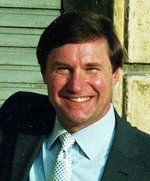News
Did you know slime mould can recreate the Tokyo subway network? Or the special connection between crickets and Kevin Bacon? Samuel Hansen does and he wants to tell you all the weird and unexpected stories from the mathematical world... but he needs your help.
The UK has won two gold, one silver and two bronze medals at this year's International Mathematical Olympiad! and 1 Honourable Mention. The team came 17th out of 101 participating countries, and also received one honourable mention. It has been fifteen years since the UK team was last awarded two gold medals.
In our Science fiction, science fact project you told us that you'd like to know what time is. So we've gone and talked to an expert — Paul Davies — and we'll publish his response shortly. Meanwhile, we're opening our poll for the second round, to see which question you'd like to have answered next. So get voting!
Has your school been using our sister site Maths and Sport: Countdown to the Games as a learning resource? If yes, your commitment could earn you a reward from London 2012.
What's a particular piece of mathematics good for? It can take decades, or even centuries for an answer to this question to materialise. In today's climate, in which scientific research is increasingly judged according to its impact, this can pose a problem for pure mathematics. Now a collection of examples of mathematical ideas that have found applications long after their discovery has been published in the journal Nature.
Sometimes people are nasty when it would have been better to be nice.
Professor John Barrow, director of the Millennium Mathematics Project (the home of Plus), wins the IMA-LMS Christopher Zeeman Medal for his work promoting mathematics to the public.
How would it feel to look in a mirror and see not your own reflection but instead how you would look as the opposite sex? You can explore this strange alternate reality at this year's Royal Society Summer Exhibition where scientists from Queen Mary, University of London and University College London will use mathematical wizardry to produce gender reversed images of faces.
Airport security staff have a daunting task. With impatient queues looming over them they need to search x-ray scans of cluttered suitcases for several items at once: knives, guns and bombs. How can we ease their task and make sure they don't miss a crucial item? To find out, scientists are trying to understand how we humans take in visual information. The humble triangle plays a crucial role in the experiments they perform.
A Rubik's cube, you'll be pleased to hear, can always be solved in at most 20 moves, no matter how badly it was scrambled up to start with. Mathematicians have proved that that's true. But what if you're wrestling with a larger cube that has more than three little cubes in a row?

